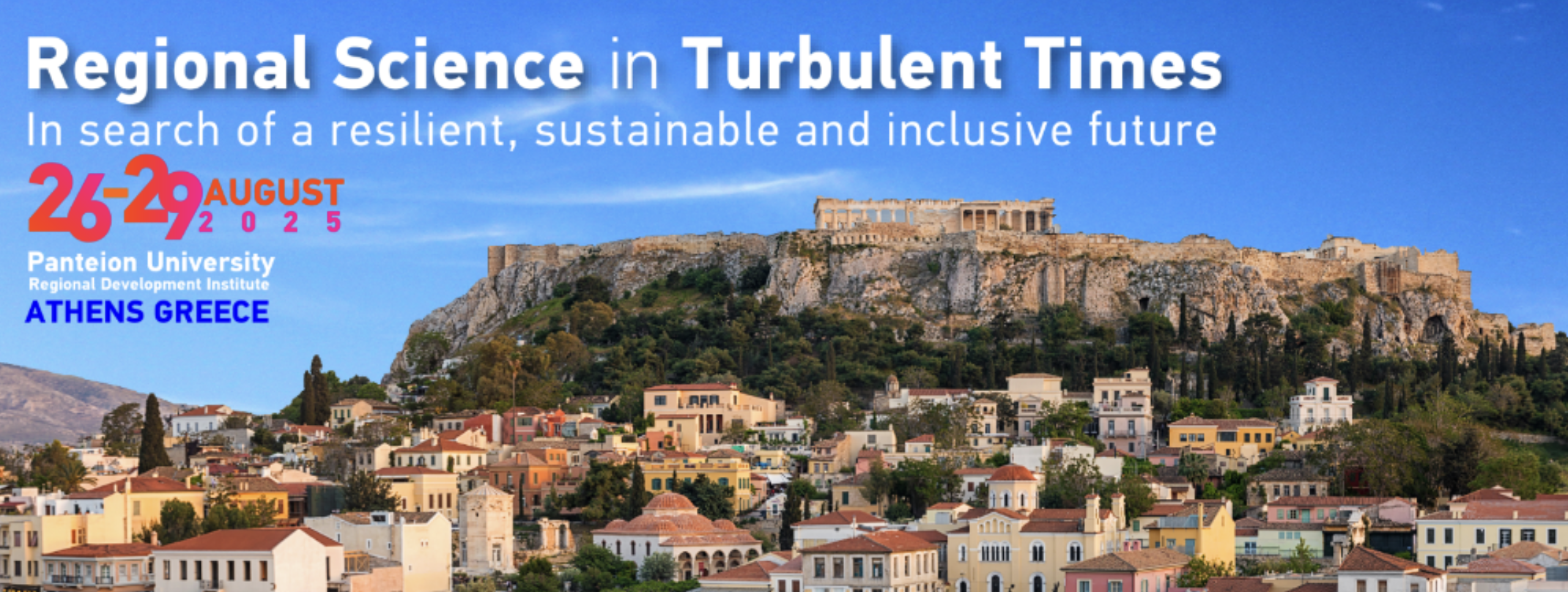Special Session at 64th ERSA Congress

Special Session: Strengthening societal resilience through policy experimentation, foresight and participatory approaches
The special session features the FUTURESILIENCE project (https://futuresilience.eu) and the CLIMAS project (https://www.climas-project.eu/), which have received funding from the European Union’s Horizon Europe. Multiple crises, such as the pandemic, disasters, energy or climate change at local, regional and international levels, have become increasingly frequent over the last two decades. They have highlighted the inequalities that emerge in the public, private and civil society sectors and at all institutional levels in relation to the way these entities are prepared to face unexpected crisis and to deal with uncertainty.
The FUTURESILIENCE project aims to strengthen European economic and social resilience through an enhanced ability to quickly respond to future crises. This will be accomplished by facilitating the fast and effective use of policy relevant research and innovation (R&I) findings for actors at national, 6 regional and local level. FUTURESILIENCE has set up 'Future Resilience Labs' to test policy relevant R&I findings through 10 pilot exercises in different local communities across Europe. The Labs create space within which multiple stakeholders will discuss and test evidence-based strategies tailored to their specific context and matching their local needs, aiming at reducing vulnerabilities and increasing capacities to be prepared for multiple types of possible crisis. The FUTURESILIENCE project contends that R&I can play a key role by providing a basis for a more flexible and responsive capacity of stakeholders in crisis periods, informing policy development and decision-making, and thus, strengthening resilience and preparedness for future events.
The ambition of the CLIMAS project is to support the transformation to climate resilience by offering an innovative problem-oriented climate adaptation toolbox, co-designed together with the stakeholders by applying a value-based approach, design thinking methods and citizen science mechanisms. The CLIMAS project team takes part in the special session featuring the CLIMAS toolbox, and the methodology for citizen-collaborative future scenario-building process (FSB) co-created in two living labs in Chios and Vilnius. Climate assemblies and living labs are considered as sustainable and reasonable tools to stimulate deliberative democracy in climate policymaking.
For the 2025 ERSA conference our aim is to run one or two sessions that will include participants representing different labs and cross-cutting approaches from the FUTURESILIENCE and CLIMAS projects, as well as other European research initiatives working with innovative approaches to build resilience. Hence, we would also like to open our sessions to authors, who may be working on the topic of resilience, so as to enhance broader participation and co-creation and to share challenges, findings, and policies for building resilient, sustainable and inclusive futures against multiple crises.
Call for abstract: https://ersa.eventsair.com/ersa2025/call-for-abstracts
Conveners: Matias Barberis (EFIS Centre) & Asimina Christoforou (RDI at Panteion University)
